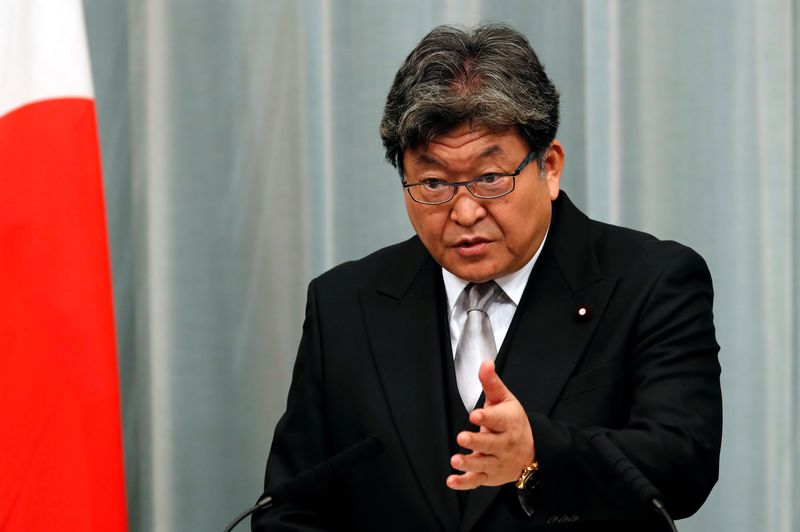TOKYO (Reuters) - Japan would face "difficulty" to immediately follow a move to cut off Russian oil imports over the invasion of Ukraine, its minister of economy, trade, and industry Koichi Hagiuda said on Thursday.
Hagiuda made the remark during a visit to Washington, after the European Union's executive on Wednesday proposed the toughest package of sanctions yet against Moscow, including the embargo on crude oil.
U.S. President Joe Biden said he would discuss further sanctions against Russia with other leaders from the Group of Seven (G7) advanced economies this week, which could pressure Japan which is wary of the impact of the oil embargo.
"Given Japan has its limit on resources, we would face some difficulty to keep in step immediately" with other countries, Hagiuda told reporters.
During a meeting with U.S. Secretary of Commerce Gina Raimondo, the two agreed on basic principles on semiconductor cooperation, aiming to diversify chip-making capacity, boost transparency, an emergency response to shortages and R&D.
"As the world is destabilising after the war in Ukraine, coordination with like-minded countries is becoming more and more important. (Today's) talks served as a major step towards advancing the Japan-U.S. relationship."
In a separate meeting with U.S Energy Secretary Jennifer Granholm, Hagiuda asked the United States to boost liquefied natural gas (LNG) output to help Japan reduce its energy reliance on Russia.
Russia oil imports accounted for 4% of Japan's overall oil imports for the last fiscal year to March. Natural gas from Moscow made up 9% of Tokyo's imports and Russia coal imports accounted for 11%.

Japan would provide public financing to help Japanese firms undertake LNG projects in the United States to lay the ground for investment, Hagiuda said.
The two sides agreed to form initiatives aimed at discussing on a regular basis clean energy technology and energy security given the Ukraine crisis, they said in a joint statement.